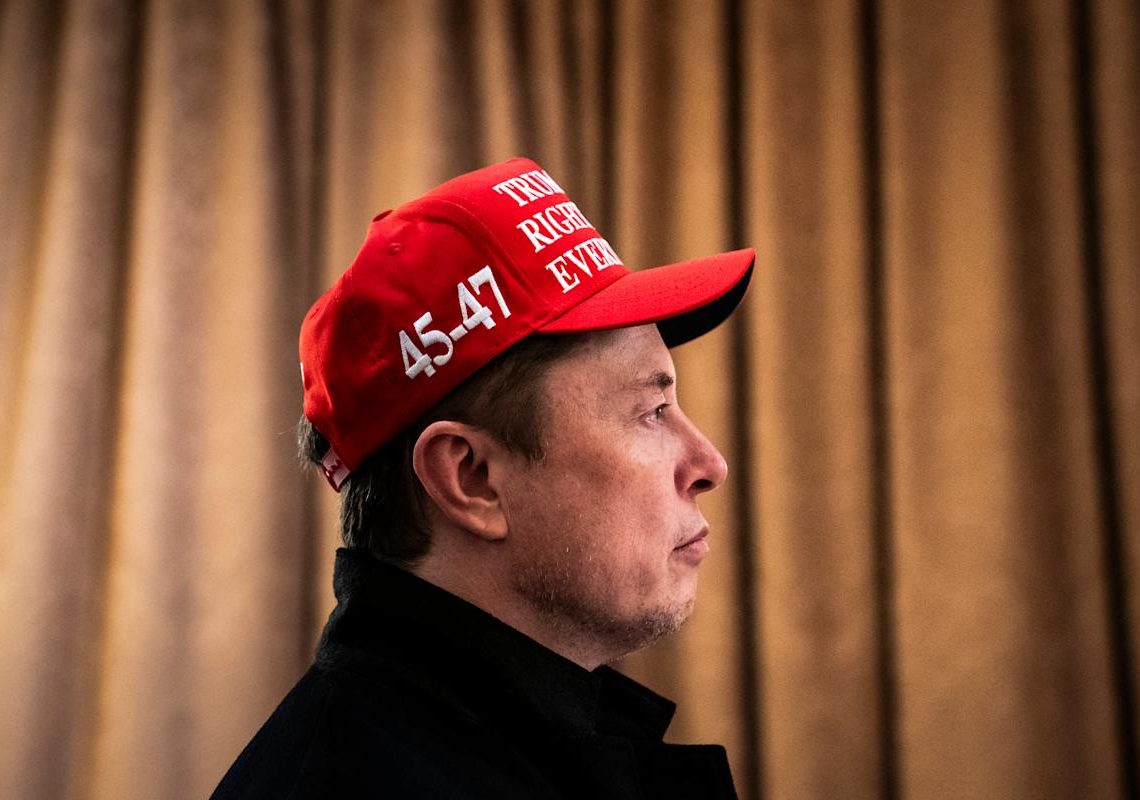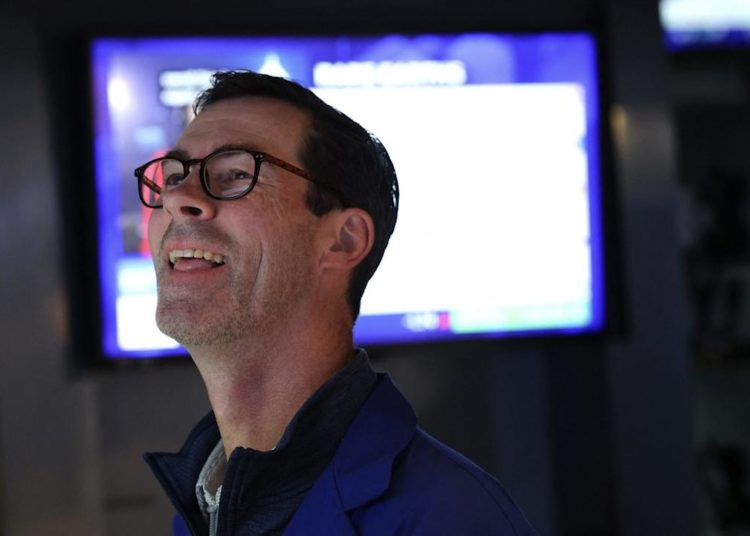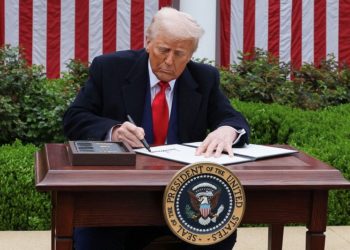Elon Musk had tried to go over the head of a Cabinet secretary – again.
The billionaire leader of the U.S. DOGE Service helped install Gary Shapley, a mid-level IRS official, as the agency’s acting commissioner last week. But the Internal Revenue Service falls under the purview of Treasury Secretary Scott Bessent, who had repeatedly bristled at DOGE’s attempts to intervene at his agency.
This time, the resulting tensions spilled out in a yelling match in the West Wing, where Musk and the nation’s top financial official battled within earshot of President Donald Trump, said two people familiar with the heated confrontation, who spoke on the condition of anonymity to describe the sensitive situation. Bessent won, and Shapley was replaced after just three days as the IRS’s acting head. Musk unfollowed Bessent on X, his social media platform.
Asked about the clash, which was first reported by Axios, White House press secretary Karoline Leavitt referred to a statement she issued last week.
“Disagreements are a normal part of any healthy policy process,” the statement read. “And ultimately everyone knows they serve at the pleasure of President Trump.”
But the showdown was just Musk’s latest confrontation with a top Trump appointee in a three-month government stint that has been peppered with controversy. He has rebuked officials such as Secretary of State Marco Rubio, Transportation Secretary Sean P. Duffy and economic adviser Peter Navarro in meetings or on social media, calling them incompetent or suggesting that they have lied. He has also alienated Trump aides with unscripted remarks and abrupt edicts, forcing political appointees to scramble to explain his decisions.
His group appeared to scale back its ambitions, with Musk saying that DOGE was on track to cut $150 billion from government spending this year – far below his original goal.
Musk’s popularity also waned with voters. Polls show a majority of Americans hold an unfavorable view of him and say he has had too much sway in government operations. Fox News and other conservative outlets warned that the billionaire had become “political baggage” for the president, particularly after a Wisconsin Supreme Court race this month that Musk said was “important for the future of civilization” and drew his personal involvement. A liberal judge won.
With the electric-car company he runs, Tesla, battered by declining sales and falling share prices, Musk on Tuesday told investors that his “time allocation to DOGE will drop significantly” starting next month, though he added he will probably stay involved.
“I’ll have to continue doing it for probably the remainder of the president’s term just to make sure that the waste and fraud that we have stopped does not come roaring back,” he said. “So I think I’ll continue to spend, you know, a day or two per week on government matters for as long as the president would like me to do so, and as long as it is useful.”
The White House and a spokeswoman for DOGE – which stands for Department of Government Efficiency – did not respond to questions about the timing of Musk’s planned departure.
“He was a tremendous help, both in the campaign and in what he’s done with DOGE,” Trump told reporters in the Oval Office on Wednesday. “What he does is good. … And we have to, at some point, let him go and do that. And we expected to be doing it about this time.”
Musk’s plan to step back in May has been long reported – and widely anticipated by Trump political officials. While the billionaire, who put nearly $300 million toward seeing Trump and other Republicans elected last year, has retained support from the president, the White House has sought for weeks to put guardrails around Musk and his team’s activities.
“I like what DOGE stands for. I don’t like how they’ve done it,” said one Trump appointee, who spoke on the condition of anonymity to describe candid frustrations with Musk’s operation. The official compared DOGE to overly aggressive chemotherapy, invoking a line attributed to Musk about one of his deputies, praising the team for combating the federal bureaucracy but saying the unintended consequences have been deeply harmful. “They got rid of the cancer – and a lot of the healthy cells, too.”
The first sign of trouble for Musk came in early March, when Trump said Cabinet secretaries, not Musk, were in charge of cutting employees and programs. Until then, DOGE had embarked on an unprecedented sweep through government agencies with a seeming mandate from Trump to remold the federal workforce as it wished.
Musk’s team moved to dismantle targets such as USAID and the Consumer Financial Protection Bureau, overseeing steep job cuts and canceling spending to which it objected. The pace and scope of those initial actions led to a wave of public scrutiny and triggered lawsuits that put Musk in the spotlight.
DOGE pledged to cut “wasteful” federal spending but often carried out its edicts with little warning to agency officials and outside organizations. For instance, an abrupt plan to cut billions of dollars in biomedical research funding for universities prompted lawsuits from affected organizations and resistance from GOP lawmakers. Courts swiftly blocked the move. DOGE continues to slow-walk billions of dollars in federal payments, though, through efforts to take control of grants.
Senior political advisers around the Trump administration had complained – almost from the outset – about Musk’s unpredictable maneuvers. The billionaire clashed openly with Cabinet officials at a meeting in early March. Shortly after that, Trump issued his strongest rebuke yet of his close ally.
“As the Secretaries learn about, and understand, the people working for the various Departments, they can be very precise as to who will remain, and who will go,” Trump said in a Truth Social post. “We say the ‘scalpel’ rather than the ‘hatchet.’”
From then on, it was clear that Musk would not spend Trump’s full term in Washington. As a “special government employee,” the billionaire is limited to 130 days working for the administration this year. Otherwise, he would face the prospect of divesting and disclosing financial conflicts of interest. Despite that, he had indicated he would stick with DOGE for at least another year, focusing on areas such as Social Security spending.
But DOGE’s disruption started to affect Musk’s businesses, too.
Fierce protests and demonstrations against Tesla began gaining steam, sometimes erupting into vandalism. The company’s stock, which is key to Musk’s wealth, slid on the notion that DOGE’s unpopularity had damaged the electric-vehicle maker’s brand.
On Tuesday, Tesla reported a 71 percent plunge in profits and a 9 percent decline in revenue compared with the first quarter of 2024. Deliveries slipped 13 percent compared with last year – the largest drop in recent history – and the stock has fallen more than 30 percent since the beginning of the year. (Share prices have risen the past few days, though, as investors cheered the idea that Musk might soon leave the White House.)
The EV manufacturer was already struggling with increased competition and global trade uncertainty, but experts and analysts have largely attributed its recent woes to Musk’s political divisiveness. Musk began Tuesday’s earnings call by lambasting anti-Tesla protesters and repeating baseless claims that they are funded by outside groups, the “recipients of wasteful largesse.”
As Tesla’s financial picture worsened this year, Musk started to sound a different tune about DOGE, saying last month that “most of the work” to find a planned $1 trillion in savings would be complete by the time his 130-day tenure concluded.
Stephen K. Bannon, who served as Trump’s chief strategist during his first term and has consistently clamored for Musk’s departure, said there must be “very specific accountability” as to the fraud and waste that DOGE allegedly found before the billionaire leaves government.
“It’s imperative we find out what he found. He questioned the integrity of the entire system – and that’s necessary, but President Trump needs the specific details of what he found. We can’t leave it hanging out there,” Bannon said. “We have to have a full accounting that makes sure any government data – classified or not – and any personal financial data, people’s tax returns, and their health records, have not gone to any entity not controlled by the Trump administration or the U.S. government.”
Musk did not respond to a request for comment.
While his influence ebbed in the White House, Musk was pouring money and energy into a Wisconsin Supreme Court race he said “might decide the future of America and Western Civilization!”
But with DOGE forcing cuts back in Washington, Democrats in Wisconsin took advantage of Musk’s low approval ratings and used him as a villain to galvanize their base.
The conservative judge Musk backed, Brad Schimel, ultimately lost the race to his liberal challenger Susan Crawford.
The campaign gimmicks that had helped Musk energize Trump supporters did not seem as effective, and some professional Republicans began to see him as a political liability.
Initially, Musk had a “panache” that was unique for the Republican Party, said Christopher Nicholas, a GOP strategist in Pennsylvania. But now, he is a “lightning rod.”
Even some Musk backers have acknowledged that his freewheeling style can cause complications.
Howard Lutnick, the commerce secretary, said on an episode of the “All-In” podcast last month that he and Musk had a plan before taking the stage at a Trump campaign rally in October: Musk would announce a goal to slash the federal budget by $1 trillion.
Then they walked out in front of a boisterous crowd – and Musk began to riff and wound up doubling the total.
“He says $2 trillion [in cuts],” Lutnick said on the podcast. “And then I’m sitting there going, and I’m like, I think I said, ‘Alrighty then.’ Or something like that. … What was I supposed to say?”
By mid-April, Musk was significantly tempering expectations for DOGE. Far from the planned $1 trillion in annual spending cuts, Musk said the group had identified $150 billion in savings for the 2026 fiscal year.
By last week, his clash with Bessent in the West Wing only brought limited shock in the White House – where the thought of senior officials yelling at each other in proximity to the president was still seen as a major violation of decorum, even in the boundary-breaking Trump administration. Several officials shrugged it off, saying they have grown used to Musk’s antics.
“It’s Elon being Elon,” said a White House official.
Related Content
Freedom Riders faced a mob at this bus station. DOGE wanted to sell it.
The Abrego García case: A timeline and assessment of key documents
Trump brushes aside courts’ attempts to limit his power
The post Elon Musk had the government in his grasp. Then it unraveled. appeared first on Washington Post.




